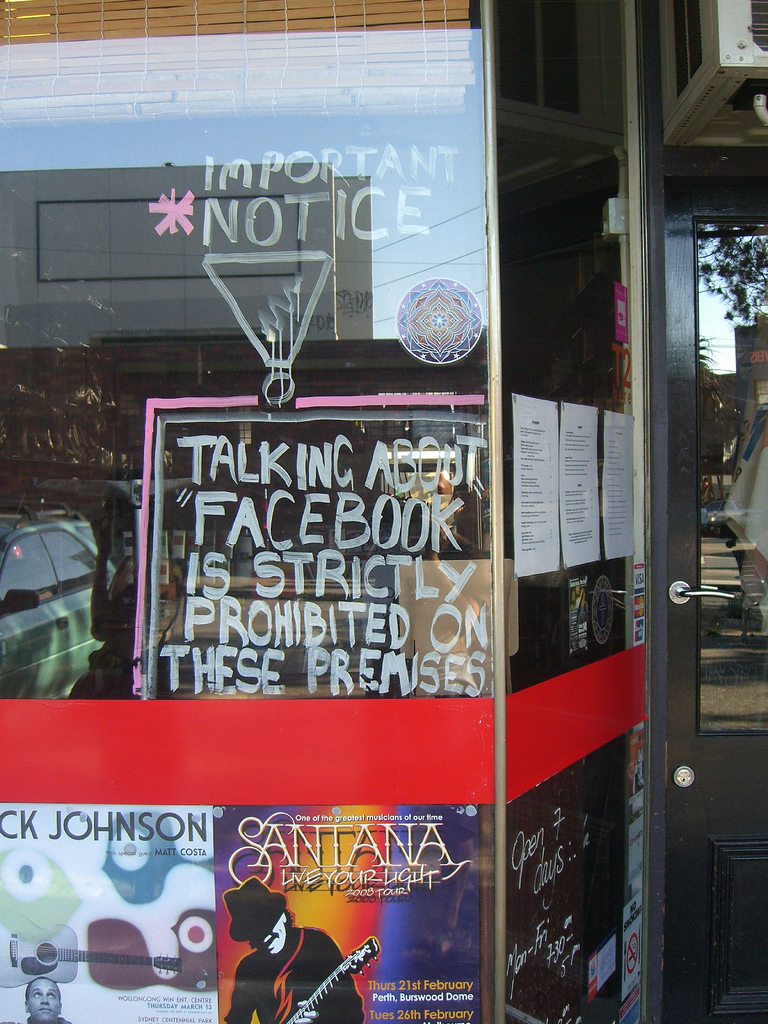Like many people, I have a Facebook profile, but it isn't something I use much. And like many people I've become increasingly uneasy about the way our interactions are monetised and manipulated. I don't mind this to an extent - I'm willing to trade off free use of something for some adverts I ignore, for example. But it's begun to feel all rather insidious with Facebook.
Alan Levine posted that he wasn't going to dramatically quit Facebook, but his plan was to maintain a non-presence:
But quitting seems to pointless. Or impactless. So I have an evil plot. I am keeping my facebook account, but I have completely neutralized its presence. I belong to no groups, like nothing, or use anything that sucks in my information
But I think you could take this one step further. In those fantasy books and comics, when a human needs to slay a monster, they nearly always have an epiphany where they use it's own strength against it. The same approach could be applied to the behemoth of Facebook.
What Facebook really sells to companies is meaningful data and connections. The key to this is that they are meaningful. If I 'Like; a company it matters because my friends will believe that I really endorse their products. If I install an app it's because it appeals to me. And if people who Like X tend to also Like Y then that becomes valuable data.
But what if those actions weren't meaningful? What if they were genuinely, and deliberately random? A company may get some benefit along the lines of 'all publicity is good publicity', but the real value of knowing it's something I genuinely like is removed. And this corrupts the data set, because those connections between points are no better than a random number generator.
So, if I was a real hacktivist type, I'd create a tool that searches Facebook and randomly suggests companies to Like and apps to install. Then we'd all do it, and Mark Zuckerberg would cry 'I'm melting, I'm melting.'
This is only a half-serious suggestion - the point I want to make is that in social media, it is integrity that counts - data integrity, personal integrity and behavioural integrity. Which prevents marketing firms and retailers with a problem as often they are trying to modify or coerce this integrity. But as soon as you do that, the whole approach becomes meaningless. If I retweet something because I might get a prize, then people don't value that tweet. And so the moral is, don't sell your integrity cheaply. And don't manipulate our integrity or we can use it against you.




